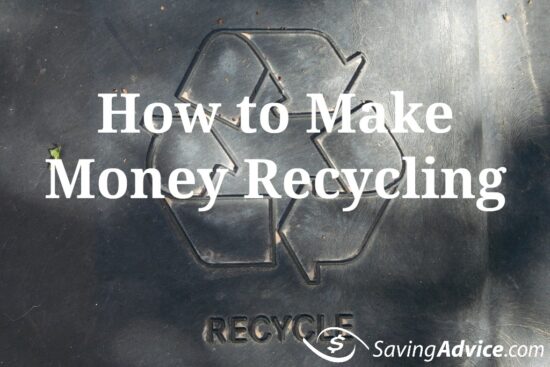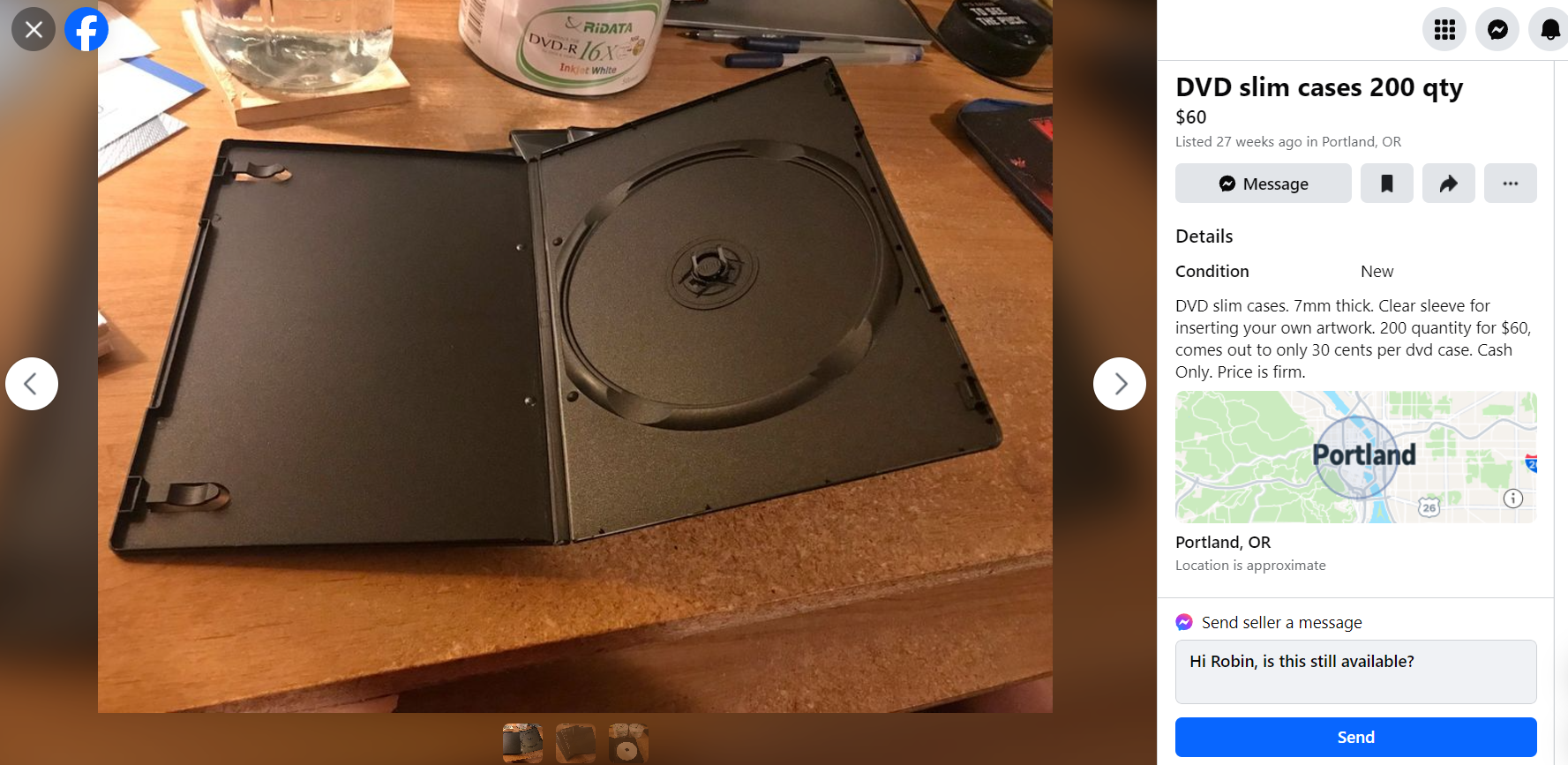
Having trouble getting started? Here are some ideas.
Ways to Make Money Recycling
If you’re looking for a way to make extra cash, recycling is a great way to do it! You can recycle and make cash from each of the following items:
- Ink cartridges: Staples and OfficeMax both offer store credits when you bring in old ink and toner cartridges for recycling. You have to join their loyalty programs, but you can earn some money to offset the cost of more ink. Staples pays $2.50 per cartridge, OfficeMax pays between $2 and $3 depending on the type of reward account you have.
- Scrap metal: Aluminum, steel and tin cans, as well as almost any other metal can be turned into a scrap dealer for cash. Most cities have at least one metal recycler, you just have to look them up in the Yellow Pages or online. They usually pay by the pound and the price you get is based on the current market value of the item you’re bringing in. They take everything from copper wiring and plumbing to old lawn mowers, grills, and metal tools. Old appliances, cast iron sinks, bikes, and even cars are all fair game for the metal recycler.
- Plastic: Many cities also have plastics recyclers that will pay per pound of plastic. Some will only take certain kinds of plastic, so make certain you understand what’s accepted and what’s not. Additionally, some states (such as Oregon, Washington and Hawaii) now offer a deposit back for every plastic bottle you recycle. This is similar to the glass deposits that are available in some states. These deposits back are usually between 5 and 10 cents per bottle.
- Glass: You may have a glass recycler in your city who will pay you by the pound for glass. Some states also give a deposit back on glass bottles when you bring them back to the point of purchase.
- Cell phones: Don’t toss your old cell phone in the landfill. Websites like Decluttr will pay you for your old phone. For example, they’re offering $6 for old iphone 7s (here). The newer the phone, the more you get paid. If your phone is very old they may not pay for it. In that case, think about donating it to a women’s shelter or other organization and taking a small tax deduction.
- Clothes: You can take unwanted clothes in decent condition to either a consignment store or a donation center like Goodwill or the Salvation Army. The consignment store will pay you cash when your items sell or, if you go the donation route, you can take a tax deduction.
- Computers/electronics: Some stores and computer manufacturers will give you store credit if you recycle an old computer, TV, or appliance with them. The money, while not significant, can offset the purchase of a new item. You can also donate old computers to local schools for a tax deduction.
- Books, CD’s, and DVD’s: If you don’t want to sell them, donate them to your library or to Goodwill for a tax deduction.
- Car parts: Ever been to the parts store to buy a battery, tires, or other part and be told that there is a “core charge” or recycling fee for that item? This means if you don’t turn in the original item, that you will be charged extra to offset the likelihood that those parts will end up in the landfill. However, if you bring back the old battery or parts, the store will refund the core charge. Core charges can be significant so never toss an old battery or alternator. Take it to the store where you bought the new one and get your core charge back.
- Cars: If your old clunker is such a mess that you can’t trade it in, you have a couple of options. First, you can take it to a metal recycler for cash. Second, you could donate it to a local community college or school that will use it to teach auto repair and you get a tax deduction. Third, you can donate it to an organization like the Salvation Army. They will usually sell the car to raise money and the amount it sells for can be deducted from your taxes.
- Old building supplies, appliances, and furniture: Do you have too much paint, extra flooring from your renovation, or perfectly good furniture that you no longer like? If it’s in usable condition, donate it to Habitat for Humanity’s ReStores. These stores sell donated goods for a fraction of the retail price to the public. The money raised goes to fund Habitat’s building projects. You get a tax deduction.
Places You Can Make Money Recycling
If you can’t recycle something through a conventional recycling outlet, try listing it on Craigslist or Facebook Marketplace. You’d be surprised at what people will pay money for. I’ve seen empty CD and DVD cases sell to people who make movies and music for a living. Old bikes or toys are bought by people who refurbish them and then re-sell them. Even newspaper can sell if you have a lot of it and someone needs it for a large project or organization.

You can’t recycle everything for cash. Sometimes you’ll just have to either throw it away or recycle it for free. And if you live in an area without scrap buyers it can be more difficult to turn junk into cash. However, you can make a small amount of fun money by turning your trash into cash when you have the opportunity. Before you throw something out, do a quick Google search to see if there is anyone paying cash for that item. You can do something good for your wallet while helping the environment.
Header Photo Credit: Alan Levine

Jennifer Derrick is a freelance writer, novelist and children’s book author. When she’s not writing Jennifer enjoys running marathons, playing tennis, boardgames and reading pretty much everything she can get her hands on. You can learn more about Jennifer at: https://jenniferderrick.com/.



Leave a Comment